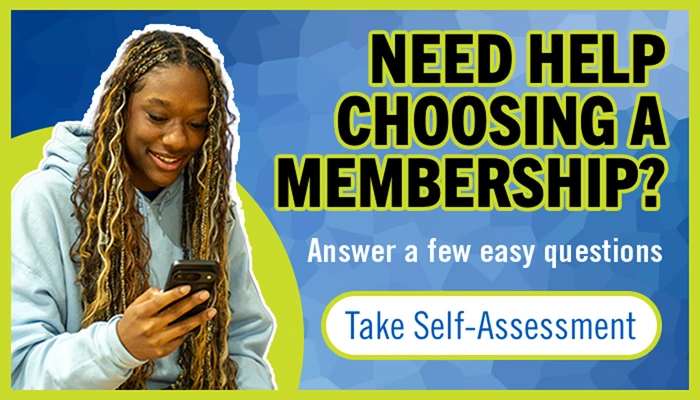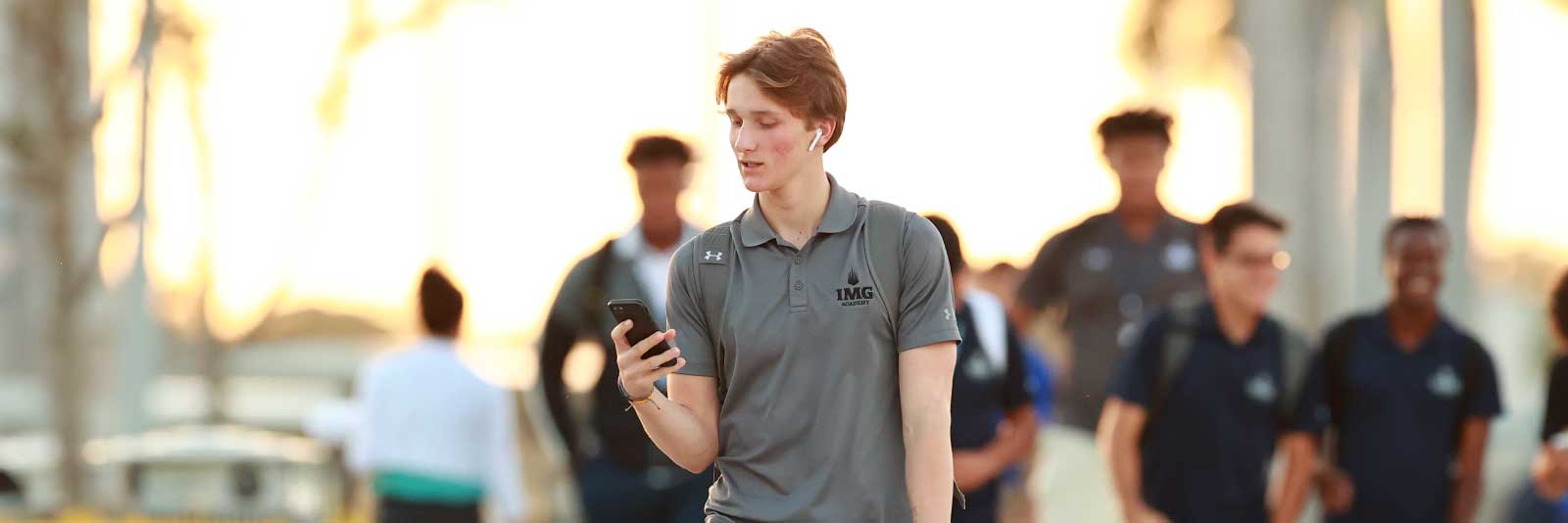The NCAA Contact Period is exactly what it sounds like—all communication between athletes and coaches is fair game. Coaches can email, text, call, direct message and generally contact athletes and their parents through any NCAA-approved method. In-person contact can occur on the college campus, as well as at tournaments, at the recruit’s school and home. In other words, the communication floodgates are open, so take advantage of this opportunity to get unlimited access to talk to coaches.
Danny Koenig, former D1 and D3 college coach, shares how coaches prepare for the contact period and what athletes should expect.
Recruiting tips for the NCAA Contact Period
This period is frequently used by coaches to visit athletes at their school, home and/or at tournaments and showcases. Coaches use this time to get to know their top recruits as they solidify offers. Meeting with a recruit and their family in person helps them evaluate the athlete’s personality and determine if they would be a positive addition to the program and the school.
This also gives recruits a unique opportunity to get to know a coach outside of the college campus. In-person meetings are the perfect time to ask in-depth questions of the coach. If you have any reservations about the program or the school, ask thoughtful questions to get a better feel for that school and determine if it’s the right fit for you.
If a coach does visit you during the contact period, this is a good sign that you are high on their prospect list. While an offer isn’t guaranteed during this visit, it’s a great idea to be prepared either way. Are you comfortable committing to the school if the coach extends an offer? Do you need more time to decide? Get on the same page with your parents before the coach arrives. Here are some questions you can ask yourself to gauge if a school is the right fit for you.
Insider Tips: Because it’s common for colleges to visit recruits at their school during the NCAA contact period, there are a few steps you can take to ensure the visit is successful.
- Let your coach, guidance counselor and even your teachers know when the coach will be visiting you.
- Make sure that your guidance counselor has an official transcript on hand for the coach.
- Get to school on time, dress nicely and clean out your locker. Even small things can leave a positive—or negative—impression on a coach.
- Follow up any visits with a “thank you” to the coach. Ask the coach if there’s any other information you can provide them, anything you should work on and what the next steps in the process are.
The parents’ role during a home visit
There are a few general guidelines for parents to consider when meeting with a coach in person. The coach is visiting the student-athlete at home to get to know them and gauge if they would be a positive addition to the team. This means parents need to take a step back. Let the athlete answer the coach’s questions and avoid speaking over your child. In other words, make sure that the athlete is in the limelight.
When the conversation shifts to financials and housing, this is a good time for parents to jump into the conversation. Coaches expect that the parents will know more about the family’s financial situation. The most important thing to remember is the college coach is recruiting the student-athlete, not the parents. However, the coach is still evaluating the parents, watching to see if they dominate the conversation at every turn to speak for their student or if they allow their student to think for themselves and act more independently.
Insider Tip: If parents have a lot of questions for the coach, discuss them with your student-athlete before the visit. Put together a list of questions for your student to ask the coach. The coach will appreciate that the student-athlete thought ahead, and the parents will get the answers they need.
Read more: College Recruiting Tips and Advice for Parents of Athletes
When is the NCAA Contact Period?
Division I FBS and FCS Football
- Dec. 5 – 18, 2025
- Jan. 5 – Jan 31, 2026 (National Service Academies only)
- Apr. 15 – May 23, 2026
Division i baseball
- August 1-17, 2025
- Sept. 12 – October 12, 2025
- March 1 – July 31, 2026
Division I Men’s Basketball
- September 3 – April 30, 2026
Division i women’s baskeball
- September 1–30, 2025: Contact Period
- March 1 – April 1, 2026
division i women’s beach volleyball
- August 1 – December 7, 2025
- Except: Dec. 17–31, 2025: Dead period *Coaches attending the American Volleyball Coaches Association annual awards banquet may have incidental contact with two-year college prospective student athletes being honored at the banquet, provided no recruiting conversation occurs.
- January 17 – April 28, 2026
- May 23 – July 31, 2026
division i men’s cross country, women’s cross country and track & field
- August 22 through December 13, 2025 (except during a dead period)
- Nov. 10-13
- Nov. 22
- Dec. 27 through July 31, 2026 (except during a dead period)
- March 13-14
- June 10-13
Division I Men’s Golf
division i men’s golf
- August 1 – November 26, 2025 (except dates listed as dead period)
- January 2 – July 31, 2026
division i men’s lacrosse
- August 1–4, 2025
- September 1 – October 31, 2025 (no lacrosse evaluations are permitted)
- November 1–23, 2025
- Except: November 10–13, 2025
- January 5–19, 2026 (no lacrosse evaluations are permitted)
- March 1–May 21, 2026
- May 26 (noon) – July 31, 2026
- Except: July 2–10, 2026
division i women’s lacrosse
- September 4–November 1, 2025, except the dates below
- November 7–9
- November 14–16
- November 21–23
- December 1–30
- Except: December 22–26, 2025
- Jan 3–May 21, 2026
- May 26 – June 11, 2025
division i women’s volleyball
- September 1 – November 30, 2025
- Except: November 10–13, 2025
- January 16 – July 31, 2026, except dates below
- March 2–5, 9–12, 16–19 and 23–26
- March 30–April 2
- April 6–9
- May 1–28
division i softball
- August 1-10, 2025: Contact Period
- June 6* – July 31, 2026 – *Dates are based on the Women’s College World Series®. If the WCWS dates are delayed, the dead period continues through the day of the final championship game. If the WCWS ends after two games, the dead period concludes on the day of the final game and the contact period begins the next day
other division i sports
- Not all DI sports have contact periods. Check the recruiting calendar for more details about the different NCAA recruiting periods.
division ii football
- November 27, 2025 – March 11, 2026: Contact period
- Except: December 1 (7 a.m.) – 3 (7 a.m.), 2025 is a dead period (only contact period for junior college recruits)
- Except: February 2 (7 a.m.) – 4 (7 a.m.), 2026 is a dead period
division ii men’s basketball
- September 12 – October 12, 2025
- March 1 – July 31, 2026
- March 1 – May 24, 2026 (continuous contact), Resumes Jun 2 – Jul 31, 2026 after May dead period
division ii women’s basketball
- September 12 – October 12, 2025
- March 1 – Jul 31 2026: Contact period
- During any high school all-star game that occurs within the state in which the member institution is located: Evaluation period
- Nov. 10 (7 a.m.) – Nov. 12 (7 a.m.), 2025 – signing-date blackout
- May 25 – June 1, 2026 – pre-summer dead period
other division ii sports
Not all DII sports have contact periods. Check the recruiting calendar for more details about the different NCAA recruiting periods

